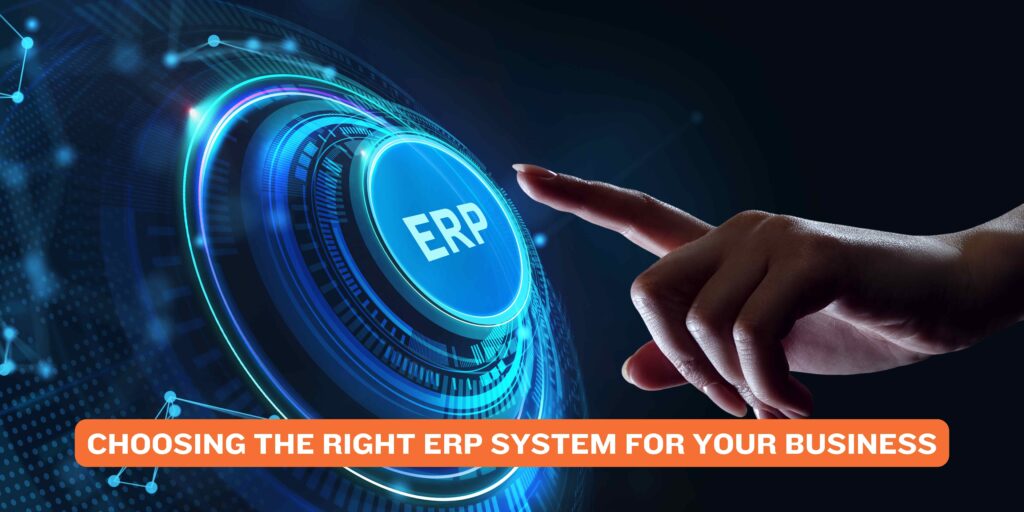
Selecting the right Enterprise Resource Planning (ERP) system is a critical decision that can significantly impact the efficiency, productivity, and competitiveness of your business. With a myriad of options available in the market, choosing an ERP system that aligns with your business needs, goals, and budget can be a daunting task. This blog post aims to guide you through the essential considerations and steps to help you choose the right ERP system for your business.
Assess Your Business Needs and Objectives
Before diving into the selection process, it’s crucial to conduct a comprehensive assessment of your business needs, objectives, and processes. Identify the key areas where an ERP system can add value, such as finance, inventory management, supply chain, human resources, and customer relationship management. Define your business goals, scalability requirements, and any specific functionalities or features that are essential for your operations.
Consider Your Budget and Total Cost of Ownership (TCO)
ERP implementations can vary significantly in terms of cost, depending on factors such as software licensing fees, implementation services, customization, training, and ongoing maintenance and support. Establish a realistic budget for your ERP project and consider the total cost of ownership (TCO) over the system’s lifecycle. Evaluate different pricing models, such as subscription-based (SaaS), perpetual licensing, or hybrid options, to determine the most cost-effective solution for your business.
Evaluate Vendor Reputation and Industry Experience
Research and evaluate ERP vendors based on their reputation, industry experience, customer reviews, and track record of successful implementations. Look for vendors that specialize in your industry or have experience working with businesses similar in size and complexity to yours. Consider factors such as vendor stability, financial health, product roadmap, and commitment to innovation and customer support.
Assess System Functionality and Customization Capabilities
Evaluate the functionality, features, and modules offered by different ERP systems to ensure they align with your business requirements and processes. Assess the system’s flexibility and customization capabilities to accommodate your unique needs and workflows. Look for ERP solutions that offer scalability, modular architecture, and the ability to integrate with third-party applications and systems seamlessly.
Consider User Experience and Training Requirements
User experience (UX) is a critical factor in the successful adoption and utilization of an ERP system. Evaluate the system’s interface, ease of use, and accessibility across devices to ensure it meets the needs of your employees and facilitates user adoption. Consider the training and support resources provided by the vendor, such as training programs, documentation, online tutorials, and customer support, to help your team effectively navigate and leverage the ERP system.
Evaluate Security, Compliance, and Data Protection Measures
Security, compliance, and data protection are paramount considerations when choosing an ERP system. Evaluate the system’s security features, encryption capabilities, access controls, and compliance with industry regulations and data protection standards, such as GDPR, CCPA, or HIPAA. Ensure the vendor has robust cybersecurity measures in place, regular software updates and patches, and a comprehensive disaster recovery and backup strategy to safeguard your critical business data and operations.
Conclusion
Choosing the right ERP system for your business is a complex and strategic decision that requires careful planning, research, and evaluation. By assessing your business needs, objectives, budget, and key considerations such as vendor reputation, system functionality, user experience, and security measures, you can make an informed decision that aligns with your business goals and sets the foundation for operational excellence, growth, and success. Remember, investing in the right ERP system is not just about selecting a software solution but partnering with a trusted vendor that understands your industry, supports your business objectives, and is committed to your long-term success.


